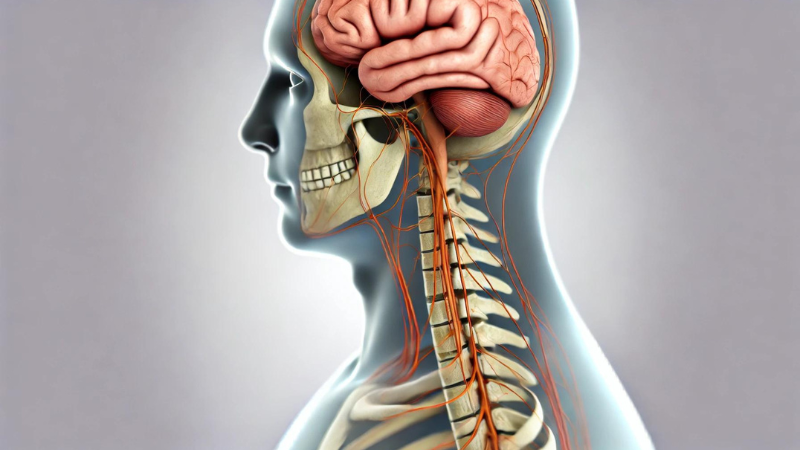Early Warning Signs of Neurological Disorders You Shouldn't Ignore
Sep 30, 2024
Understanding the Connection Between Alzheimer's and Other Neurological Disorders
Alzheimer's disease is one of the most well-known neurological disorders. It is a progressive condition that affects memory, thinking, and behavior, leading to cognitive decline. However, Alzheimer's is just one of many disorders that impact the brain. Understanding the connection between Alzheimer’s disease and other neurological conditions is crucial for advancing research and treatment options.
Alzheimer’s Disease: A Brief Overview
Alzheimer’s is a form of dementia that accounts for 60-80% of dementia cases globally. It primarily affects older adults and leads to the destruction of brain cells, resulting in significant memory loss and cognitive impairments. Symptoms worsen over time, and patients eventually lose the ability to carry out daily tasks.
Shared Characteristics of Alzheimer’s and Other Neurological Disorders
Several neurological conditions share common traits with Alzheimer’s, making it essential to explore their connections. Disorders such as Parkinson’s disease, Huntington’s disease, and multiple sclerosis (MS) also involve the deterioration of neurons and can cause cognitive impairments, motor dysfunctions, and behavioral changes. While each of these conditions has distinct characteristics, their underlying mechanisms, such as protein misfolding, inflammation, and neurodegeneration, often overlap.
Parkinson’s Disease
Parkinson’s disease is a neurodegenerative disorder that primarily affects movement control. Like Alzheimer’s, Parkinson’s involves the abnormal accumulation of proteins in the brain, particularly alpha-synuclein. These protein clumps, known as Lewy bodies, can interfere with cognitive functions, and in some cases, patients with Parkinson’s develop symptoms similar to Alzheimer’s disease, such as memory loss and confusion.
Huntington’s Disease
Huntington’s disease is a genetic condition that leads to the progressive breakdown of nerve cells in the brain. This disorder results in uncontrolled movements, emotional disturbances, and cognitive decline. The neurodegeneration in Huntington’s shares similarities with Alzheimer’s, especially in how the brain’s cells deteriorate over time, leading to memory and behavioral issues.
Multiple Sclerosis (MS)
Multiple sclerosis is an autoimmune disorder where the immune system mistakenly attacks the protective covering of nerve fibers. While MS is primarily known for causing physical symptoms like muscle weakness and coordination issues, many patients also experience cognitive problems similar to those seen in Alzheimer’s. The connection between MS and Alzheimer’s lies in the chronic inflammation and neurodegeneration that both diseases cause.
Overlapping Pathways and Research Advances
Recent research has shown that these neurological disorders may share common molecular pathways. For instance, the accumulation of beta-amyloid plaques, a hallmark of Alzheimer’s, has been observed in the brains of people with Parkinson’s disease. Additionally, neuroinflammation and oxidative stress are common factors in the progression of these disorders, suggesting that treatments aimed at reducing brain inflammation could potentially benefit patients with multiple neurological conditions.
Conclusion
Understanding the connection between Alzheimer's disease and other neurological disorders is key to developing effective treatments and therapies. By studying shared mechanisms such as protein misfolding, inflammation, and neurodegeneration, researchers are making strides toward uncovering the complexities of these conditions. For more information on neurological disorders and treatments, visit our neurology section.
By exploring these links, we can enhance patient care and offer hope for more effective management of Alzheimer's and other neurological diseases.
Recent Post

Why Doctors Prescribe Pregabalin with Epalrestat and Methylcobalamin for Nerve Pain Steris Healthcare.

Steris Healthcare Pvt Ltd Radiates Excellence at the Dec 2025 ZEE Media Global Innovation & Leadership Summit, London!

Terbinafine 250mg & Itraconazole 100mg: The Ultimate Solution for Stubborn Fungal Infections Steris Healthcare.

Understanding Nebivolol 5mg & S-Amlodipine 2.5mg: A Powerful Combo for Heart Health

FLAVOSHIELD 500: The Complete Guide to Micronized Purified Flavonoid Fraction for Venous Health Steris Healthcare.

Unlocking Relief: How Egolix 150mg Treats Endometriosis Pain Steris Healthcare.

Isosorbide Mononitrate 60 mg in Long-Term Angina Management: Role and Best Practices Steris Healthcare.

How Ribavirin Capsules Help in Treating Chronic Viral Infections Steris Healthcare.

Mefenamic Acid With Paracetamol Suspension Effective Relief for Pain and Fever in Kids Steris Healthcare.

Levosalbutamol and Ipratropium Bromide Respirator Solution Quick Relief for Wheezing & Tight Airways Steris Healthcare.

